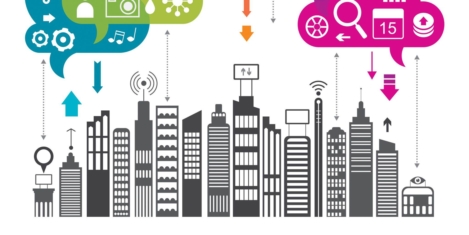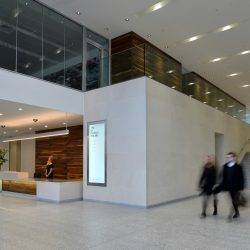March 7, 2017
London businesses bounce back from initial concerns over the Brexit vote 0
 London firms’ optimism has rebounded since a poll taken just after the EU Referendum, according to the latest CBI/CBRE London Business Survey; as its the most recent data reveals that a fifth of companies (19 percent) feel more positive about the economy over the next six months, compared to 4 percent in the last Survey. Firms are also more optimistic about their own businesses over the next half year, with over a quarter (26 percent) feeling positive (compared to 8 percent in the last Survey). Over eight in ten (84 percent) of London’s companies see Crossrail 2 as being central to the capital’s successful expansion. Meanwhile, a similar number of firms (80 percent) think sticking to the Government’s current timetables for building Heathrow’s third runway is vital to London’s attractiveness as a place to invest. As the city continues to expand eastwards, businesses recognise the importance of developing the right infrastructure to support growth in the area, especially in the Docklands. Four fifths of firms (84 percent) think that river crossings in East London are essential for boosting the city’s growth.
London firms’ optimism has rebounded since a poll taken just after the EU Referendum, according to the latest CBI/CBRE London Business Survey; as its the most recent data reveals that a fifth of companies (19 percent) feel more positive about the economy over the next six months, compared to 4 percent in the last Survey. Firms are also more optimistic about their own businesses over the next half year, with over a quarter (26 percent) feeling positive (compared to 8 percent in the last Survey). Over eight in ten (84 percent) of London’s companies see Crossrail 2 as being central to the capital’s successful expansion. Meanwhile, a similar number of firms (80 percent) think sticking to the Government’s current timetables for building Heathrow’s third runway is vital to London’s attractiveness as a place to invest. As the city continues to expand eastwards, businesses recognise the importance of developing the right infrastructure to support growth in the area, especially in the Docklands. Four fifths of firms (84 percent) think that river crossings in East London are essential for boosting the city’s growth.










 The more recent employment figures for London suggest that until the terms of Brexit are known and put in motion, the jobs market will remain cautious. This is according to the latest Morgan McKinley London Employment Monitor which found that despite an 81 percent increase in jobs available and an 83 percent increase in professionals seeking jobs; compared to a 115 percent increase in jobs this time last year, the 2017 spike was muted in comparison. The 83 percent increase in job seekers month-on-month is coupled with a 29 percent decrease, year-on-year. Contributing to the decrease is the trickling off of non-British EU nationals working in the City, who comprise up to 10 percent of its workforce. In a post-Brexit survey of professionals conducted by Morgan McKinley, these individuals reported either moving abroad, or considering leaving London because of Brexit.
The more recent employment figures for London suggest that until the terms of Brexit are known and put in motion, the jobs market will remain cautious. This is according to the latest Morgan McKinley London Employment Monitor which found that despite an 81 percent increase in jobs available and an 83 percent increase in professionals seeking jobs; compared to a 115 percent increase in jobs this time last year, the 2017 spike was muted in comparison. The 83 percent increase in job seekers month-on-month is coupled with a 29 percent decrease, year-on-year. Contributing to the decrease is the trickling off of non-British EU nationals working in the City, who comprise up to 10 percent of its workforce. In a post-Brexit survey of professionals conducted by Morgan McKinley, these individuals reported either moving abroad, or considering leaving London because of Brexit.


 Amos Tversky and Daniel Kahneman introduced the concept of Loss Aversion in 1984, highlighting people’s tendency to strongly prefer avoiding losses to acquiring gains. Most studies suggest that losses are twice as powerful, psychologically, as gains. Lose £100 and we will feel a remorse that easily outweighs winning £100. In a similar fashion we find it very hard to see future positives when confronted with short term loses. We understand easily what we have lost but cannot imagine what there is to be gained. Furthermore, as Frederic Bastiat wrote in an 1850 paper, “That Which is Seen, and That Which is Not Seen”, man has a tendency to “pursue a small present good, which will be followed by a great evil to come, rather than a great good to come, at the risk of a small present evil”. Put these together and it is no wonder that, by and large, the future of work, corporate real estate and the workplace is so widely misunderstood.
Amos Tversky and Daniel Kahneman introduced the concept of Loss Aversion in 1984, highlighting people’s tendency to strongly prefer avoiding losses to acquiring gains. Most studies suggest that losses are twice as powerful, psychologically, as gains. Lose £100 and we will feel a remorse that easily outweighs winning £100. In a similar fashion we find it very hard to see future positives when confronted with short term loses. We understand easily what we have lost but cannot imagine what there is to be gained. Furthermore, as Frederic Bastiat wrote in an 1850 paper, “That Which is Seen, and That Which is Not Seen”, man has a tendency to “pursue a small present good, which will be followed by a great evil to come, rather than a great good to come, at the risk of a small present evil”. Put these together and it is no wonder that, by and large, the future of work, corporate real estate and the workplace is so widely misunderstood.

















